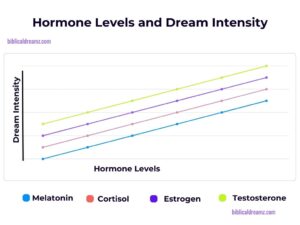Our surroundings are more than just a backdrop for our daily lives—they play a crucial role in shaping our dreams. From the temperature of your room to the scents that linger in the air, every detail of your sleep environment influences the quality, intensity, and even the emotional tone of your dreams.

Research shows that factors such as noise, light, air quality, and sleeping position can not only affect sleep quality but also the vividness and mood of your nocturnal experiences.
Key Takeaways
- Sleeping Position Matters: The way you sleep can influence the emotions and themes in your dreams.
- Temperature & Humidity: A cool, controlled environment (around 60-67°F or 15-19°C) promotes deeper sleep and balanced dream recall.
- Light and Noise: Excessive light and disruptive sounds lead to lighter sleep stages, often imprinting fragmented or negative dream images.
- Air Quality: Poor indoor air quality can reduce REM sleep by as much as 15%, impacting dream intensity (NCBI).
- Scent Influence: Pleasant scents like lavender or vanilla can enhance positive dream emotions, while unpleasant odors may trigger negative ones (PubMed).
Sleep Position and Dream Content
Did you know that your sleeping posture might be guiding your dreams? Studies have indicated that the side you choose to sleep on can subtly alter your dreamscape. For instance, research involving 63 participants found that right-side sleepers often experienced dreams filled with comfort and security, while left-side sleepers reported more frequent nightmares (Study Overview).
Although personal comfort plays a key role in determining the best sleeping position, being mindful of your posture can also offer insights into recurring dream themes.
Related: The Influence of Hormone Levels on Dreams
Temperature and Dream Quality
Room temperature is a silent influencer of sleep quality. A bedroom maintained between 60-67°F (15-19°C) is optimal for ensuring a balance between deep sleep and REM sleep—the stage when most dreams occur.
Warmer temperatures can prolong REM sleep, sometimes leading to more vivid or even unsettling “fever dreams.” In contrast, a slightly cooler room facilitates deeper, uninterrupted sleep, reducing the frequency of abrupt awakenings and fragmented dream recall (Sleep.org).
Get instant dream insights with our Free Dream Interpretation App
Light, Noise, and Air Quality
The interplay of light and sound in your sleeping environment can significantly shape your dream narrative. Exposure to excessive ambient light or disruptive noise, such as traffic or urban sounds, often causes lighter sleep stages.
These interruptions may imprint external stimuli directly into your dreams—imagine hearing an alarm ringing within your dream before waking up. Studies have shown that noise levels exceeding 45 decibels can fragment sleep and alter the content of dreams (Sleep Foundation).
In addition, air quality cannot be overlooked. Pollutants and allergens in the air not only affect respiratory health but also reduce the duration of restorative REM sleep by nearly 15%, leading to dreams that are less cohesive and more fragmented (NCBI).
Environmental Factor | Impact on Dreams |
|---|---|
Room Temperature | Warmer temperatures often lead to disturbing dreams, while cooler settings can result in peaceful dreams. |
Noise Levels | High noise can trigger nightmares; soft, soothing sounds might lead to serene dreams. |
Bed Comfort | A comfortable bed is associated with more positive and restful dreams. |
Related: How Does Your Diet Affect Your Dreams
The Power of Scents in Shaping Dreams
Scents have a powerful, though often underestimated, impact on our subconscious. Research shows that pleasant odors—such as vanillin found in vanilla—can lead to more positive dream experiences and uplifted moods upon waking.
In contrast, unpleasant smells like thioglycolic acid have been linked to dreams with negative emotions (PubMed). While the overall influence of odors may be subtle, they can tip the balance between a peaceful dream and a distressing one.
Sensory Stimulus | Potential Dream Influence |
|---|---|
Soft Music | Dreams of serene landscapes or calming scenarios. |
Loud Noises | Nightmares or stressful dreams. |
Emotional and Cultural Influences
Dreams are not solely governed by physical surroundings; they are also deeply intertwined with our emotional states and cultural backgrounds. Elevated stress, anxiety, and even pre-bedtime activities (such as watching TV) have been shown to amplify dream intensity and emotional charge.
Moreover, cultural beliefs and personal experiences often dictate how we interpret our dreams. For example, while some cultures view dreams as prophetic or spiritually significant, others see them simply as byproducts of a restless mind.
Culture/Location | Common Dream Themes |
|---|---|
Urban Areas | Fast-paced, modern scenarios. |
Rural Areas | Nature-themed, tranquil dreams. |
Optimizing Your Sleep Environment
Creating a sleep-friendly sanctuary is essential for nurturing not only quality sleep but also enriching dream experiences. Here are some actionable tips:
- Control Room Temperature: Maintain your bedroom between 60-67°F (15-19°C) to support a balanced sleep cycle.
- Minimize Light and Noise: Use blackout curtains, eye masks, and white noise machines to block external disturbances.
- Enhance Air Quality: Consider air purifiers or indoor plants to filter out pollutants.
- Choose Comfort: Invest in a mattress and pillows that support your natural sleep posture.
- Introduce Pleasant Scents: Use essential oils like lavender or vanilla to create a calming atmosphere.
- Wind Down Emotionally: Incorporate relaxation techniques—such as deep breathing or meditation—before bedtime to reduce stress and promote positive dream imagery.
Light Exposure | Dream Impact |
|---|---|
Blue Light | Disrupts sleep quality, leading to anxious dreams. |
Darkness | Contributes to deeper sleep and vivid dreams. |
Conclusion
The environment in which you sleep has a direct impact on the nature of your dreams. From the subtleties of room temperature and ambient noise to the more nuanced influences of scent and sleep position, every element contributes to the tapestry of your nocturnal narratives.





